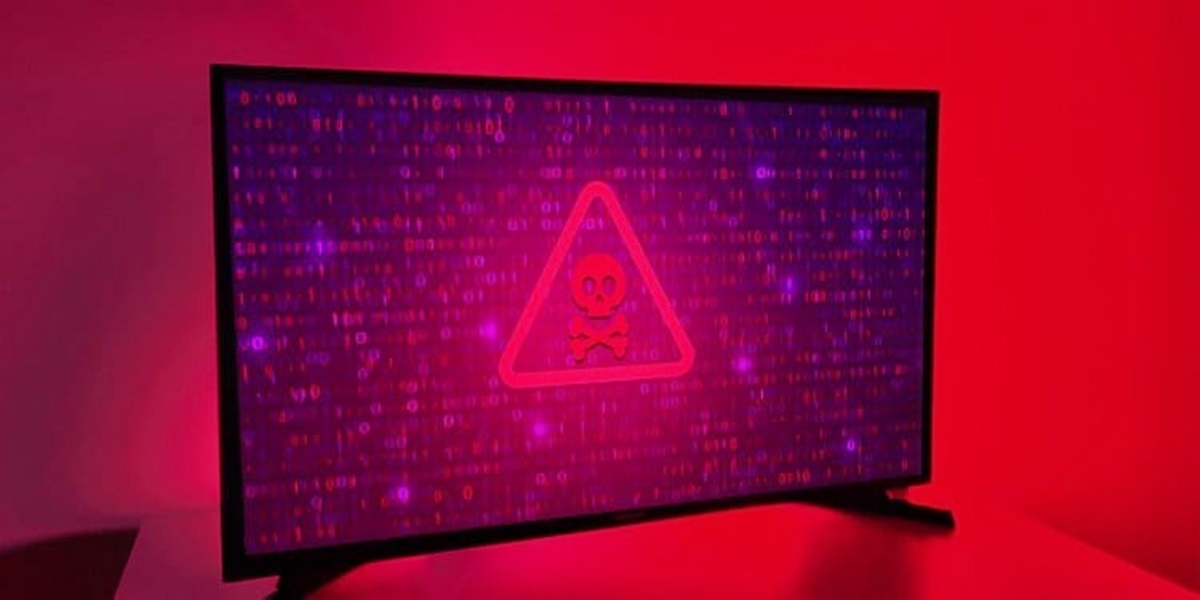How do Smart TVs get infected with viruses?
Smart TVs have become increasingly common in households, offering a range of features and entertainment options. However, just like any other connected device, Smart TVs are not immune to viruses and can be vulnerable to infection if proper precautions are not taken.
There are several ways in which a Smart TV can become infected with a virus:
- Malicious Apps: One of the most common ways for a Smart TV to get infected is through the installation of malicious apps. These apps may appear legitimate but contain hidden malware that can infect the TV’s system.
- Unsafe Websites: Browsing unsafe websites on your Smart TV can expose it to potential viruses. These websites may contain malicious code that can exploit vulnerabilities in the TV’s software.
- File Sharing: Connecting your Smart TV to external devices, such as USB drives or external hard drives, can introduce viruses if those devices are already infected. It is important to scan any external devices before connecting them to your Smart TV.
- Network Vulnerabilities: Smart TVs are connected to the internet, making them susceptible to attacks on your home network. If your home network is not properly secured, hackers can gain access to your Smart TV and install malicious software.
It is important to note that while Smart TVs can get infected with viruses, the likelihood of encountering such infections is relatively low compared to other devices, such as computers and smartphones. Smart TVs generally have limited computing power and run on closed operating systems, which makes it more difficult for viruses to infiltrate their software.
However, as Smart TVs become more advanced and offer increased connectivity, it is crucial to take steps to protect them from potential threats. This includes being cautious when downloading apps, avoiding unsafe websites, regularly updating the TV’s firmware, and securing your home network.
Can a virus on a Smart TV steal personal information?
With the increasing amount of personal information stored on our devices, it is natural to wonder if a virus on a Smart TV can compromise our privacy. While the possibility exists, it is relatively rare for a virus on a Smart TV to specifically target and steal personal information.
Smart TVs are designed primarily for media consumption and entertainment purposes, and their operating systems are generally more limited compared to computers or smartphones. This means that they have fewer capabilities for storing and accessing personal information. Additionally, most Smart TVs do not have built-in web browsers or email applications, reducing the risk of inadvertently sharing personal data.
That being said, it is important to note that a Smart TV can still be a potential gateway for hackers to access other devices on your network, such as computers or smartphones, where personal information may be stored. Once inside the network, a skilled hacker could exploit vulnerabilities to gain access to other devices and potentially steal personal information.
To minimize the risk of personal information theft from a Smart TV, it is essential to take preventive measures:
- Keep the Smart TV’s software and firmware up to date to ensure that known vulnerabilities are patched.
- Avoid downloading apps from unknown or untrusted sources, as these may contain malware designed to steal personal information.
- Ensure that your home network is secured with strong and unique passwords for both your Wi-Fi network and the Smart TV itself.
- Regularly monitor your network for any suspicious activity and invest in reputable network security tools to enhance protection.
By following these precautions, you can significantly reduce the risk of a virus on a Smart TV being able to steal personal information. However, it is always wise to exercise caution and be mindful of the information you share or access on any connected device, including Smart TVs.
What are the common signs of a virus on a Smart TV?
While Smart TVs are generally less prone to viruses compared to other devices, it is still important to be aware of the potential signs of a virus infection. Detecting these signs early can help you take appropriate measures to address the issue and protect your Smart TV’s security. Below are some common signs to look out for:
- Unusual Behavior: If your Smart TV starts behaving strangely or becomes unresponsive, it could be a sign of a virus infection. This may include sudden freezes, random reboots, or sluggish performance.
- Unwanted Pop-ups: If you notice an increase in pop-up ads appearing on your Smart TV, especially when you are not actively using any apps or browsing the internet, it could be an indication of a virus.
- Unknown Apps or Icons: Keep an eye out for unfamiliar apps or icons that appear on your Smart TV’s home screen without your knowledge or consent. These could be signs of a virus attempting to install or manipulate the system.
- Unauthorized Access: In some cases, a virus on a Smart TV can grant unauthorized access to hackers. If you notice any unauthorized changes in settings, channels being changed without your input, or other unusual activities, it may indicate a security breach.
- Network Issues: A virus-infected Smart TV may cause disruptions to your home network, such as slow internet speeds or frequent disconnections. If you experience these problems specifically when the Smart TV is connected, it could be a sign of a virus.
If you observe any of these signs, it is essential to take immediate action to investigate and address the issue. First, confirm that the issue is not caused by a technical glitch or a malfunctioning device. Restart your Smart TV and check if the problem persists. If it does, it may be necessary to perform a thorough scan for viruses using reputable antivirus software specifically designed for Smart TVs.
If the scan detects any viruses, follow the instructions provided by the antivirus software to remove them. If the issue persists or you are unable to remove the virus, consider seeking assistance from a professional or contacting the manufacturer of your Smart TV for further guidance.
Remember, regular maintenance, keeping your Smart TV’s software up to date, and exercising caution when downloading apps or visiting websites are key to preventing virus infections and maintaining the security of your Smart TV.
Steps to take if you suspect your Smart TV has a virus
If you suspect that your Smart TV may be infected with a virus, it is crucial to take immediate action to address the issue and protect the security of your device. Here are some steps you can take:
- Disconnect from the Internet: Disconnect your Smart TV from the internet to prevent the virus from accessing your network or spreading to other devices. This can be done by disconnecting the Wi-Fi or Ethernet cable.
- Perform a Scan: Use reputable antivirus software specifically designed for Smart TVs to perform a thorough scan for viruses. Follow the instructions provided by the software to remove any detected viruses.
- Factory Reset: If the virus persists even after scanning, you may need to perform a factory reset on your Smart TV. Keep in mind that this will erase all data and settings on your device, so make sure to backup any important files or settings beforehand.
- Update Firmware: Check if there are any available firmware updates for your Smart TV. Manufacturers often release firmware updates to address security vulnerabilities and improve the device’s overall performance and stability. Install the updates to ensure you have the latest security patches.
- Change Passwords: After addressing the virus infection, consider changing the passwords for your Wi-Fi network and any accounts associated with your Smart TV. This can help prevent unauthorized access and ensure the security of your device.
If you find it challenging to perform these steps or are unsure about the best course of action, consider seeking assistance from a professional or contacting the manufacturer of your Smart TV for guidance and support.
Remember, prevention is always better than cure. To minimize the risk of future virus infections, it is essential to follow best practices for Smart TV security. This includes being cautious when downloading apps or visiting websites, regularly updating your device’s software, and securing your home network with strong passwords and advanced security measures.
By taking these precautions and promptly addressing suspected virus infections, you can maintain the security and optimal performance of your Smart TV.
How to protect your Smart TV from viruses
Just like any other connected device, it is important to take proactive steps to protect your Smart TV from potential viruses and ensure its security. By following these guidelines, you can significantly reduce the risk of virus infections:
- Install Apps from Trusted Sources: Only download and install apps from official app stores or reputable sources. Avoid downloading apps from unknown or third-party sources, as they may contain malicious software.
- Update Firmware Regularly: Check for firmware updates for your Smart TV regularly and install them as soon as they become available. These updates often include security patches that address vulnerabilities and strengthen the overall security of your device.
- Secure Your Home Network: Protect your home network by utilizing strong and unique passwords for your Wi-Fi network and router. Consider enabling network encryption protocols such as WPA2 and disabling remote access features if they are unnecessary.
- Use a Firewall: Ensure that your home network has an active firewall that can help block unauthorized access attempts and protect your Smart TV from potential threats.
- Disable Unnecessary Services: Disable any unnecessary services or features on your Smart TV, such as UPnP (Universal Plug and Play) or DLNA (Digital Living Network Alliance), as they can be potential avenues for cyberattacks.
- Regularly Scan Connected Devices: Scan any external devices, such as USB drives or external hard drives, with reputable antivirus software before connecting them to your Smart TV. This can prevent the spread of viruses from infected devices.
- Keep Privacy Settings Strict: Review and adjust the privacy settings on your Smart TV to ensure that your personal information is not being accessed or shared without your consent.
- Be Cautious of Links and Pop-ups: Avoid clicking on suspicious links or pop-up ads that may appear while using your Smart TV. They may lead to malicious websites or download malware onto your device.
- Invest in Network Security: Consider using network security tools, such as secure DNS services or intrusion detection systems, to enhance the overall security of your home network and protect your Smart TV.
By implementing these measures and practicing good digital hygiene, you can significantly reduce the risk of virus infections on your Smart TV. Remember to always stay vigilant and stay informed about the latest security practices to ensure the ongoing protection of your device.


